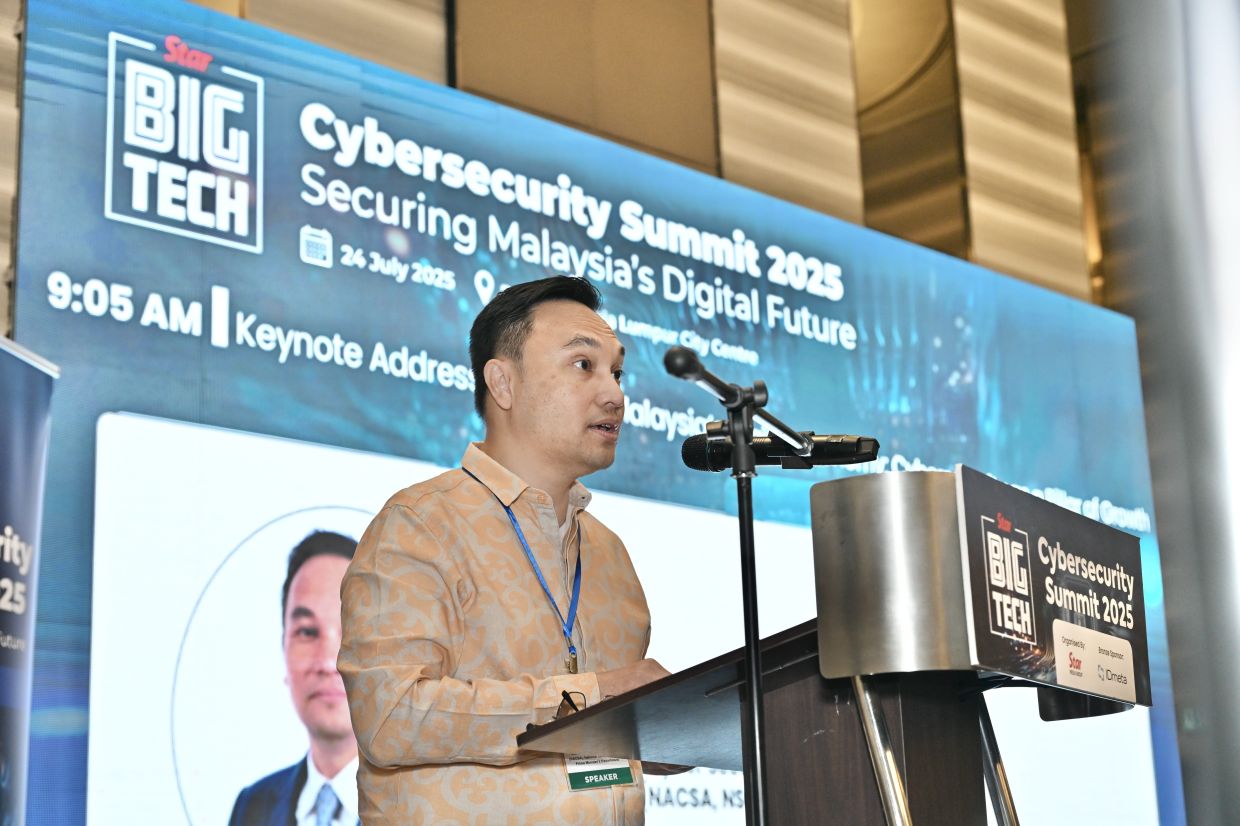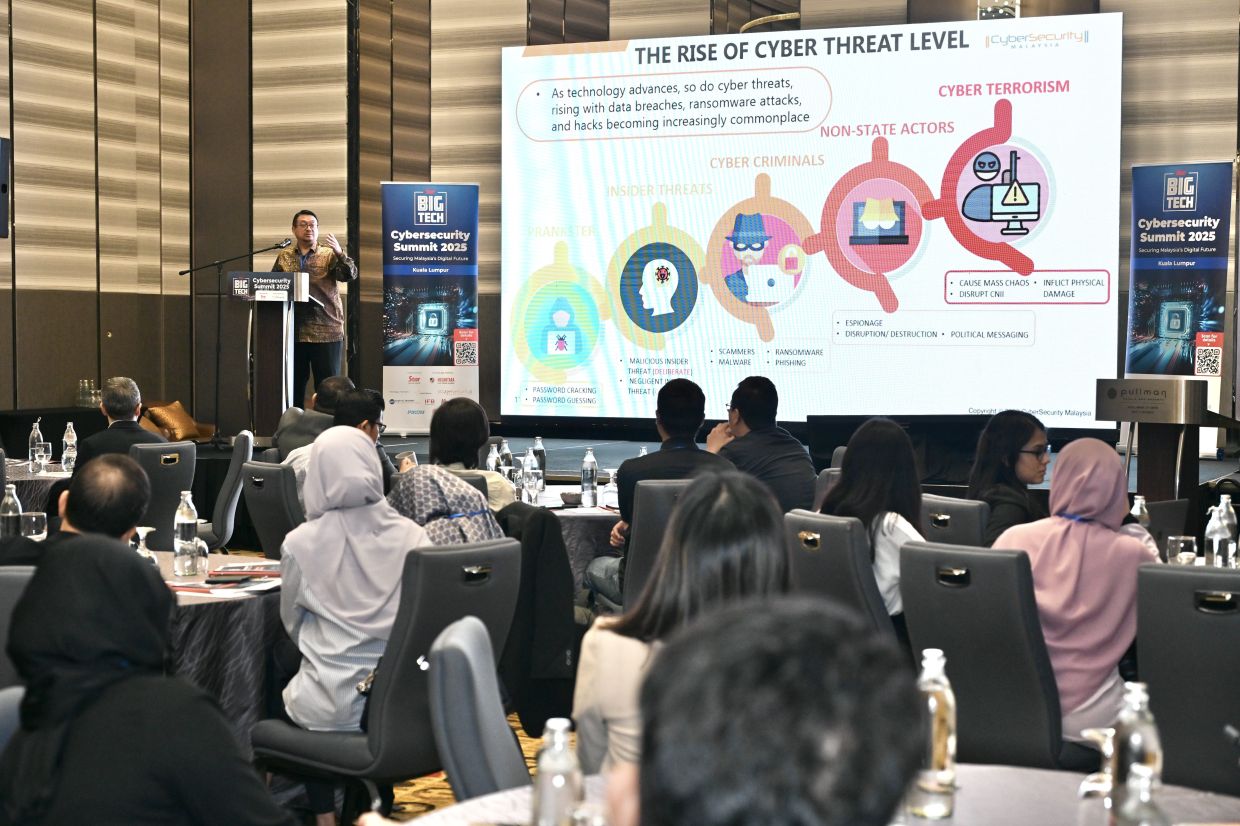Related posts:
Nocturia: Symptoms, Diagnosis & Treatment
https://rightwayspro.blogspot.com/2023/05/nocturia-symptoms-diagnosis-treatment.html
Peeing Problems ?
https://rightwayspro.blogspot.com/2020/08/problems-with-peeing.html
Arial, Tahoma, sans-serif; font-size: 16px; line-height: 1.533em; margin: 0px 0px 15px; overflow-wrap: break-word; overflow: visible; padding: 0px;">
KUALA LUMPUR: The government is planning to expedite the completion of the 13th Malaysia Plan (13MP) within just seven months, a significant reduction compared with the two-year preparation time for previous national plans.
Economy Minister Rafizi Ramli said the government is working towards presenting the draft of 13MP to Parliament by July 2025.
He said this ambitious timeline is driven by the need to ensure Malaysia's socio-economic blueprint for 2026-2030 is ready well ahead of schedule to address the nation's evolving challenges.
"We want to set a new record. In the past, preparing a Malaysia Plan would take up to two years.
PETALING JAYA: The 13th Malaysia Plan (13MP) must help steer the country’s transition towards becoming a high income nation by 2030 with emphasis on greater private sector participation and less bureaucratic red tape, say economists.
Sunway University economics professor Dr Yeah Kim Leng is of the view that the 13MP must be in tune with the World Bank’s definition of a high-income nation.
“It is important to accelerate economic growth so that the income gap with other high-income countries continues to narrow.
ALSO READ: MMA: Doctor shortage, healthcare reform must top agenda
“The plans must also include pressing ahead with the required educational, health, infrastructural and environmental development that underpin a dynamic and resilient economy,” he said in an interview.
The 13MP, which is to be unveiled in Parliament on Thursday, will chart a strategic road map for the nation’s economy for the next five years.
The plan, said Dr Yeah, should also contain mechanisms and policies to help Malaysia shift towards a value added technology and innovation-driven economy where private sector participation is crucial.
“There is also a need for policies to increase revenue mobilisation to keep abreast of the need for higher government spending while simultaneously raising spending efficiency and service delivery effectiveness.
“This can be achieved through digitalisation and technology adoption, especially the use of artificial intelligence.”
The economic roadmap, he noted, must include the streamlining and restructuring of government linked companies and state-owned enterprises.
“This will help unlock the country’s full economic potential through stronger investment, entrepreneurship and private sector-led growth,” he added.
Economist Geoffrey Williams said the 13MP should focus on reducing the role and interference of government in existing business and commercial areas and leaving these to the private sector.
“The government should focus on areas that are the direct legitimate concern of government, including public health, education and social protection.
“Regulations should be slashed and focused only on minimum standards of health and safety, anti-corruption, good governance and anti-trust issues,” he said.
The 13MP, he added, must take into account social issues, with the creation of sustainable living income levels in the form of a Universal Basic Income and a Universal Basic Pension.
“These must support policies to raise incomes through meaningful work with a fair share of value created going to employees.
“Free higher education should be a priority through the reform of the higher education system and replacing National Higher Education Fund Corporation loans with a sustainable financial system,” said Williams.
The recent changes in the global economic landscape is also a factor that should be addressed under the MP13, he pointed out.
“The United States tariff issue has given us a lesson that protectionist policies come with reciprocal costs.
“So removing restrictions to market access should be a priority for 13MP,” he said.
Economist Prof Emeritus Barjoyai Bardai said over-reliance on a purely capitalistic approach with regards to foreign direct investment has resulted in less than 200,000 companies controlling over 80% of the economy.
He said there should be a shift towards developing the nation’s micro-small and medium enterprises (MSMEs) which make up 65% of the nation’s manpower or some three-million workers.
The 13MP, he said, must also ensure the development of the nation’s semi-conductor industry, which currently ranks seventh globally.
Strategic Institute for Asia Pacific senior economic advisor Dr Anthony Dass said the 13MP must shift from the post Covid-19 recovery period to one of economic transformation to drive high-value growth, particularly in the digital and green economy.
This, he said, must be coupled by inclusive development and fiscal reform, adding that efforts must also be carried out to boost high-tech investment while accelerating upskilling and technical and vocational education and training.
13MP must clear the way for private sector growth, say economists
PETALING JAYA: The 13th Malaysia Plan (13MP) must help steer the country’s transition towards becoming a high income nation by 2030 with emphasis on greater private sector participation and less bureaucratic red tape, say economists.
.
Malaysia is experiencing a more sophisticated and aggressive wave of cyber threats, with 2,366 incidents reported in the first half of 2025, says the National Cyber Security Agency (Nacsa).
Nacsa's chief executive Ir Dr Megat Zuhairy Megat Tajuddin, said cyberattacks are no longer solely targeting critical infrastructure or institutions.
“These attacks increasingly target our most vulnerable population, including children, the elderly, and digitally inexperienced users,” he said during his keynote address at the Cybersecurity Summit 2025 on Thursday (July 24).
Organised by Star Media Group and supported by IDMeta as the bronze sponsor, the summit carried the theme “Securing Malaysia’s Digital Future.”
Megat said in 2024, Nacsa’s National Cyber Coordination and Command Centre (NC4) recorded 4,626 cybersecurity incidents, a 43% increase from the previous year.
“In the first half of 2025 alone, 2,366 incidents involving National Critical Information Infrastructure (NCII) were reported.
ALSO READ: Cybersecurity demands proactive identity verification to counter AI threats
“These figures underscore the urgent need to strengthen national cyber hygiene and awareness,” Megat added.

He said cybersecurity is a critical national priority and should no longer be seen as merely a technical issue.
“Today's cyber threats don't simply target systems and software. They exploit something far more human, our trust, our habits, and the gaps between institutions,” Megat said.
CyberSecurity Malaysia's chief executive officer, Datuk Ts Dr Amirudin Abdul Wahab, joined the call for stronger safeguards, warning that digitalisation and emerging technologies, while transformative, also introduce new vulnerabilities.
“The more connected we are, the more exposed we become to the threat of cyber attacks,” he said.
Amirudin emphasised the need for organisations to go beyond prevention and focus on cyber resilience, which is the ability to respond, recover, and resume operations swiftly after an attack.
He also highlighted the importance of building a secure, resilient, and trusted cyber ecosystem through greater collaboration among regulators, industry players, academia, and international stakeholders.
Sarbnedhan Singh Sandhu of the Securities Commission Malaysia warned that compliance alone doesn’t ensure security.
He stressed the need for well-enforced frameworks aligned to business risks, noting that weak controls often lead to breaches.
Meanwhile, Securemetric Technology Sdn Bhd managing director Wo Swee Teck said generative artificial intelligence (AI) introduces serious risks.

He noted that effective risk mitigation depends on implementing strong cybersecurity measures, enforcing strict privacy safeguards, and ensuring continuous validation of AI models.
The one-day event gathered industry experts to address the country’s most pressing cybersecurity concerns, including the emerging risks of generative AI, vulnerabilities in operational technology (OT) systems, talent shortages, and the growing importance of digital trust in a hyperconnected world.
The summit also showcased actionable strategies, regulatory frameworks, and real-world case studies aimed at enhancing cyber resilience across all sectors.
This year’s edition featured more than 19 distinguished speakers and attracted over 80 participants, including C-level executives, IT security professionals, regulators, cybercrime investigators, and representatives from sectors such as telecommunications, finance, logistics, and technology startups.
Looking ahead, the CloudTech & DataCentre Conference 2.0, scheduled for Aug 6–7, will further explore strategies to position Malaysia as a regional hub for sustainable, high-tech data centres while advancing digital resilience.
The blood pressure-lowering effect of nitrate-rich beetroot juice in older people may be due to specific changes in their oral microbiome, according to the largest study of its kind.
Researchers at the University of Exeter conducted the study, published in the journal Free Radical Biology and Medicine, comparing responses between a group of older adults to that of younger adults. Previous research has shown that a high nitrate diet can reduce blood pressure, which can help reduce the risk of heart disease. The paper is titled "Ageing modifies the oral microbiome, nitric oxide bioavailability and vascular responses to dietary nitrate supplementation."
Nitrate is crucial to the body and is consumed as a natural part of a vegetable-rich diet. When the older adults drank a concentrated beetroot juice shot twice a day for two weeks, their blood pressure decreased—an effect not seen in the younger group.
The new study provides evidence that this outcome was likely caused by the suppression of potentially harmful bacteria in the mouth.
An imbalance between beneficial and harmful oral bacteria can decrease the conversion of nitrate (abundant in vegetable-rich diets) to nitric oxide. Nitric oxide is key to healthy functioning of the blood vessels, and therefore the regulation of blood pressure.
Study author Professor Anni Vanhatalo, of the University of Exeter, said, "We know that a nitrate-rich diet has health benefits, and older people produce less of their own nitric oxide as they age. They also tend to have higher blood pressure, which can be linked to cardiovascular complications like heart attack and stroke
"Encouraging older adults to consume more nitrate-rich vegetables could have significant long-term health benefits. The good news is that if you don't like beetroot, there are many nitrate-rich alternatives, like spinach, arugula, fennel, celery and kale."
The study recruited 39 adults aged under 30, and 36 adults in their 60s and 70s through the NIHR Exeter Clinical Research Facility. The trial was supported by the Exeter Clinical Trials Unit.
Each group spent two weeks taking regular doses of nitrate-rich beetroot juice and two weeks on a placebo version of the juice with nitrate stripped out. Each condition had a two-week "wash out" period in between to reset. The team then used a bacterial gene sequencing method to analyze which bacteria were present in the mouth before and after each condition.
In both groups, the make-up of the oral microbiome changed significantly after drinking the nitrate-rich beetroot juice, but these changes differed between the younger and older age groups.
The older age group experienced a notable decrease in the mouth bacteria Prevotella after drinking the nitrate-rich juice, and an increase in the growth of bacteria known to benefit health, such as Neisseria. The older group had higher average blood pressure at the start of the study, which fell after taking the nitrate-rich beetroot juice, but not after taking the placebo supplement.
Co-author Professor Andy Jones, of the University of Exeter, said, "This study shows that nitrate-rich foods alter the oral microbiome in a way that could result in less inflammation, as well as a lowering of blood pressure in older people. This paves the way for larger studies to explore the influence of lifestyle factors and biological sex in how people respond to dietary nitrate supplementation."
Dr. Lee Beniston FRSB, Associate Director for Industry Partnerships and Collaborative Research and Development at BBSRC, said, "This research is a great example of how bioscience can help us better understand the complex links between diet, the microbiome and healthy aging.
"By uncovering how dietary nitrate affects oral bacteria and blood pressure in older adults, the study opens up new opportunities for improving vascular health through nutrition. BBSRC is proud to have supported this innovative partnership between academic researchers and industry to advance knowledge with real-world benefits."
More information: Anni Vanhatalo et al, Ageing modifies the oral microbiome, nitric oxide bioavailability and vascular responses to dietary nitrate supplementation, Free Radical Biology and Medicine (2025). DOI: 10.1016/j.freeradbiomed.2025.07.002
Journal information: Free Radical Biology and Medicine